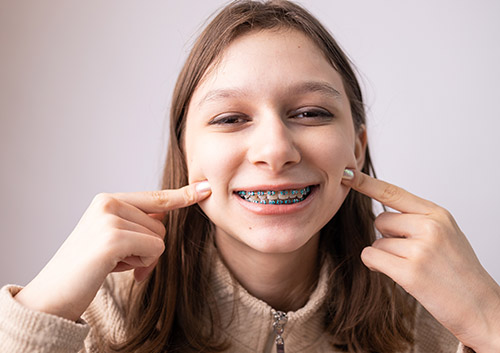Is There an Act Three for Our Teeth?
October 17th, 2025

Act One: Those 20 adorable baby teeth which begin arriving when you’re about six months old and are probably gone by the time you’re twelve.
Act Two: The 32 (if you have all your wisdom teeth!) adult teeth which start showing up around the age of six, and need to last the rest of your lifetime. Unless there’s an . . .
Act Three: Where science has discovered a way to repair damaged teeth or create replacements for lost teeth that would look and function just like our original teeth.
Sounds like science fiction, doesn’t it?
In biological terms, of course, we’re not there yet. But teams of scientists around the world have been working toward just this goal—the ability to repair a tooth with its own biological material or even grow a new tooth when an adult tooth is seriously damaged or lost.
Because the pulp—the living tissue inside each tooth—contains dental stem cells, some researchers are studying whether these cells can be used to regenerate the living pulp inside a damaged tooth. Even more exciting, there’s research being done into the possibility of using these stem cells to rebuild an entire tooth—pulp, dentin, and hard enamel exterior. Because the supply of usable dental stem calls is quite small, and process of guiding these cells to create all the varied parts of the tooth is quite complex, this research is in its early stages.
In other studies, scientists have focused on tooth regeneration by studying the teeth of other species. Mice, for example, have front teeth with open roots. This allows these teeth to keep growing up as they wear down, because stem cells inside mouse gums are always working to create new tissue. Even though our teeth are not exactly comparable (no open roots in human teeth!), finding out just how this tissue regeneration works in mice and other animals might help find an answer for human tooth regeneration.
Right now, these scientific goals are just that—goals for a future day. But in the meantime, your quality of life doesn’t need to suffer when you lose an adult tooth. You can enjoy a third act right now with dental implants.
Cosmetic concerns aren’t the only reasons why you want your complete smile restored in the event of a lost tooth. A missing tooth can lead to many unpleasant consequences:
- Speaking and eating can become more difficult.
- Lack of stimulation from biting and chewing can cause the bone beneath the lost tooth to shrink.
- Other teeth can shift to fill the gap left behind, which can affect tooth, bite, and jaw alignment.
- Loss of teeth can lead to loss of confidence.
Unlike dentures or bridges, dental implants are designed to function just like your natural teeth.
The post, or base, of each implant fuses with the bone in your jaw, acting as a “root” for the implant. Once the post has fused with the bone around it, a crown designed to match your other teeth in shape and color is secured to the post. You can eat, speak, brush, floss, keep your bone healthy, and smile confidently just as you did before.
Will biological replacements be ready for your third act in the near future? Probably not. But that’s not to say this will never be possible! In the meantime, take care of your teeth with daily brushing and flossing, eat a dental-healthy diet, and visiting our Issaquah office as recommended.
You do your best to keep your teeth intact and in place—but if you lose one through trauma or decay, talk to Drs. Arti and Ashi about an implant. Because in any stage of life, the most important result is the happy ending a healthy and confident smile brings you!



